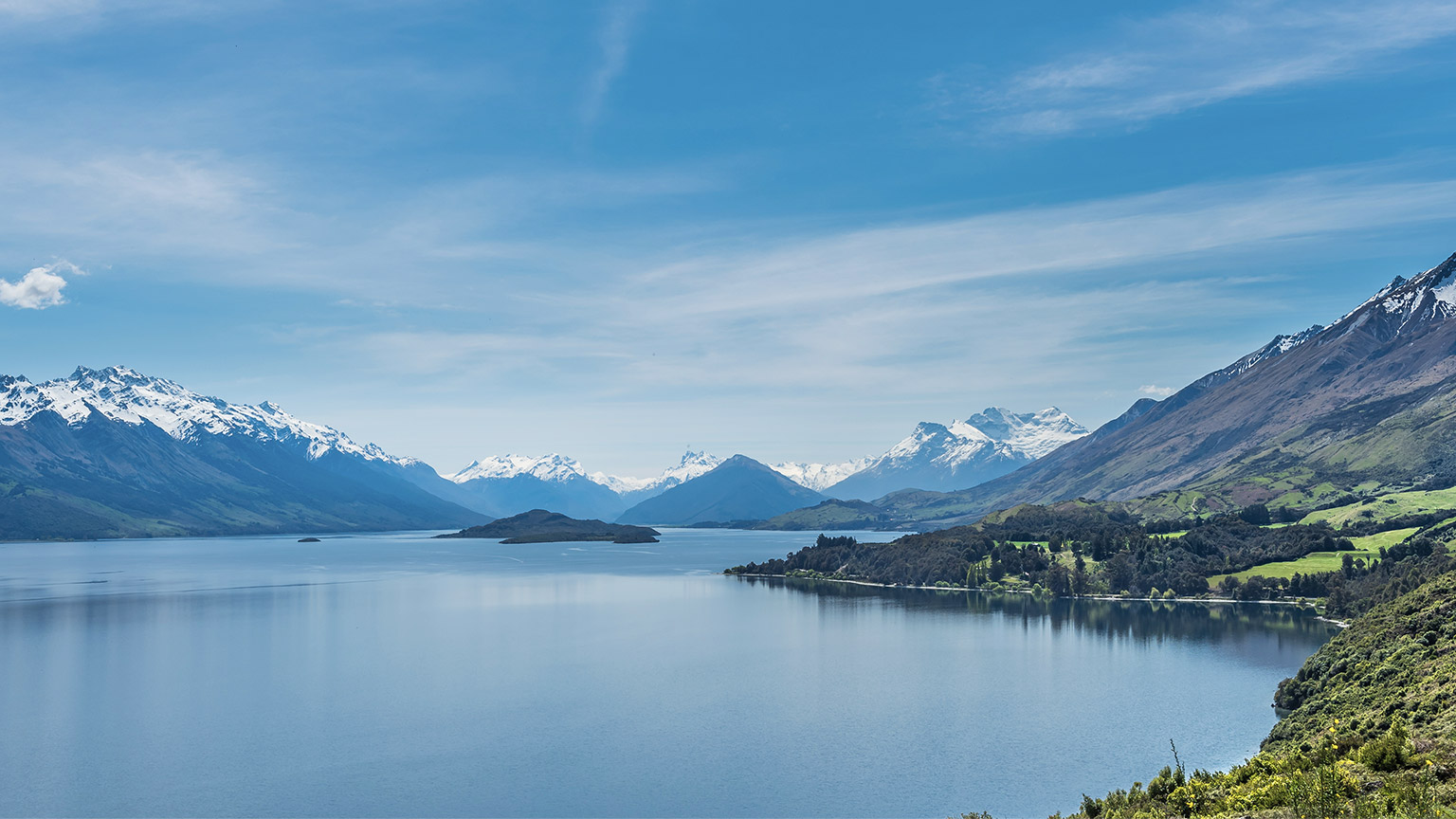About this Module
In this module, you will develop the theoretical knowledge of the components of customer service and how to apply this knowledge in assessing the quality of customer service in the New Zealand tourism industry. You will also study ACCOR Group’s customer service business systems and processes contributing to its success as a leading global hotel group.
There are three assessments associated with this module. These are:
- Assessment One: TTM5 06.1 Customer service excellence. Analyse key customer service components for providing a quality New Zealand tourism experience in a written report.
- Assessment Two: TTM5 06.2 Site visit. Case Study. Develop criteria to evaluate the quality of service in a tourism workplace. Apply criteria to evaluate the quality of service in a tourism workplace, including Manaakitanga.
- Assessment Three: TTM5 06.3 International Case Study. An analysis of ACCOR Group systems and processes that contribute to excellence in customer service.
Details
| EXPECTED DURATION | 150 hours (4 weeks) |
| CREDITS | 15 |
| LEVEL | 5 |
| ASSESSMENTS | 3 |
| SDL | 70 hours |
Assessments
| GRADUATE PROFILES | LEARNING OUTCOMES | ASSESSMENT |
|---|---|---|
|
GPO 3 Analyse and evaluate local, national, and international tourism operating environments in order to facilitate rational decision-making in the tourism industry |
LO 6.1 Analyse customer service and its ability to meet and exceed customer expectations in the New Zealand tourism and travel industry to inform industry improvement (5 Cr) |
1 Written report / long answer questions Event 1 - Analyse key customer service components for providing a quality New Zealand tourism experience |
|
GPO 4 Develop, analyse, and critique tourism business systems and processes to enable the delivery of a high-quality visitor experience and contribute to overall business effectiveness |
LO 6.2 Develop and apply criteria to evaluate the quality of service and Manaakitanga in a tourism workplace (4 Cr) |
2 Site visit/case study Event 2 - Develop criteria to evaluate the quality of service in a tourism workplace Apply criteria to evaluate the quality of service in a tourism workplace |
|
LO 6.3 Analyse an international tourism organisation to determine business systems and processes that contribute to excellence in customer service (6 Cr) |
3 Case study Event 3 - An analysis of ACCOR Group systems and processes that contribute to excellence in customer service |

TO GIVE REAL SERVICE YOU MUST ADD SOMETHING WHICH CAN’T BE BOUGHT OR MEASURED WITH MONEY AND THAT IS SINCERITY, INTEGRITY, PASSION, AND A SMILE.Douglas Adams
In this module, we will analyse the significance of customer service to the New Zealand tourism and travel industry and look at how well New Zealand is meeting and exceeding customers’ service expectations.
For clarification, a tourism or travel workplace is regarded as any New Zealand company providing service to tourists in New Zealand, whether international or domestic, and any company providing service to New Zealanders travelling overseas.
The Importance of Tourism to the New Zealand Economy

Tourism is shaped by and closely connected to our environment, culture, and society. All New Zealanders are part of the tourism sector, whether travelling away from home, hosting guests, or simply giving directions to someone in the street. Global influences impact our tourism.
Explore
Explore the following website, where you can use the filter to explore the different publications on tourism and migration. Publications | Stats NZ.
Now, click on the following headings to learn more about how tourism contributes to New Zealand’s economy.
In March 2017, tourism contributed $36 billion to the economy, about 20.7% of New Zealand’s total export receipts. Of those employed in New Zealand, 14.5% (399,150) worked directly or indirectly in the tourism industry. Tourism was our largest export sector, and our international visitors contributed NZ$14.5 billion to our economy. For the year ending March 2017, 3.5 million international visitors arrived in New Zealand - an annual increase of almost 9%.
In the year to March 2018, tourism contributed to the economy in the following ways:
- Total tourism expenditure was $39.1 billion, an increase of 7.7 per cent ($2.8 billion) from the previous year
- International tourism expenditure increased 9.6 per cent ($1.4 billion) to $16.2 billion and contributed 20.6 per cent to New Zealand’s total exports of goods and services
- Domestic tourism expenditure increased 6.5 per cent ($1.4 billion) to $23.0 billion
- Tourism generated a direct contribution to gross domestic product (GDP) of $15.9 billion, or 6.1 per cent of GDP
- The indirect value added of industries supporting tourism generated an additional $11.1 billion, or 4.3 per cent of GDP
- 216,012 people were directly employed in tourism (8.0 per cent of the total number of people employed in New Zealand), an increase of 2.6 per cent from the previous year
- Tourists generated $3.7 billion in goods and services tax (GST) revenue, with $1.7 billion coming from international tourists
- Overseas visitor arrivals to New Zealand increased by 7.8 per cent.
In the year to March 2019, tourism contributed to the economy in the following ways:
- Contributed $40.9 billion to the economy, a 4% increase from the previous year
- 229,566 people were directly employed in tourism (8.4 per cent of the total number of people employed in New Zealand), an increase of 3.9 per cent from the previous year
- International tourism expenditure increased 5.2 per cent ($843 million) to $17.2 billion and contributed 20.4 per cent to New Zealand’s total exports of goods and services
- Domestic tourism expenditure increased 3.3 per cent ($746 million) to $23.7 billion
- Tourism generated a direct contribution to GDP of $16.2 billion, or 5.8 per cent of GDP
- Tourists generated $3.8 billion in goods and services tax (GST) revenue, with $1.8 billion coming from international tourists
- Overseas visitor arrivals to New Zealand increased by 1.3 per cent.
Key provisional estimates for the year ended March 2020 include the following:
- Total tourism expenditure was $41.9 billion, an increase of 2.4 per cent ($1.0 billion) from the previous year
- International tourism expenditure increased 2.2 per cent ($371 million) to $17.5 billion and contributed 20.1 per cent to New Zealand’s total exports of goods and services
- International student expenditure (studying less than 12 months) was $4.2 billion, an increase of 7.7 per cent
- Domestic tourism expenditure increased 2.7 per cent ($629 million) to $24.4 billion
- Tourism directly contributed to a GDP of $16.4 billion, or 5.5 per cent
- The indirect value added of industries supporting tourism generated an additional $11.3 billion, or 3.8 per cent of GDP
- 225,384 people were directly employed in tourism (8.0 per cent of the total number of people employed in New Zealand), an increase of 2.5 per cent from the previous year
- Tourists generated $3.9 billion in goods and services tax (GST) revenue, with $1.8 billion coming from international tourists
- Overseas visitor arrivals to New Zealand decreased by 5.6 per cent.
Key provisional estimates for the year ending March 2021 include the following:
- Total tourism expenditure was $26.1 billion, a decrease of 37.3 per cent ($15.6 billion) from the previous year
- International tourism expenditure decreased 91.5 per cent ($16.2 billion) to $1.5 billion:
- International student expenditure (studying less than 12 months) was $78 million, a decrease of 98.1 per cent ($4.1 billion)
- International tourism’s overall contribution to New Zealand’s total exports of goods and services fell to 2.1 per cent from 20.0 per cent, a decrease of 17.9 percentage points
- GST generated from international tourists totalled $165 million, a decrease of $1.7 billion
- Overseas visitor arrivals to New Zealand decreased 98.6 per cent (3.6 million arrivals) to 52,690
- Domestic tourism expenditure increased 2.6 per cent ($622 million) to $24.6 billion
- Household tourism expenditure increased 8.1 per cent ($1.4 billion)
- Business and government decreased 13.0 per cent ($815 million)
- Tourism generated a direct contribution to GDP of $8.5 billion, or 2.9 per cent of GDP, a decrease of 47.5 per cent ($7.7 billion), or 2.6 percentage points
- The indirect value added of industries supporting tourism generated an additional $5.8 billion, or 1.9 per cent of the GDP
- The number of people attributed to being directly employed in tourism was 146,295 – a decrease of 33.1 per cent (72,285 people):
- The number of tourism employees was 126,204 – a decrease of 34.2 per cent (65,550)
- The number of tourism working proprietors was 20,091 – a decrease of 25.1 per cent (6,738)
- As a share of the total number of people employed in New Zealand, direct tourism employment was 5.2 per cent, a decrease of 2.7 percentage points from the previous year.
Key provisional estimates for the year ended March 2022 include the following:
- Total tourism expenditure was $26.5 billion, an increase of 2.7 per cent ($704 million) from the previous year
- International tourism expenditure increased 30.6 per cent ($455 million) to $1.9 billion
- International student expenditure (studying less than 12 months) was $184 million, an increase of 135.7 per cent ($106 million)
- International tourism’s overall contribution to New Zealand’s total exports of goods and services was 2.4 per cent, an increase of 0.4 percentage points
- GST generated from international tourists totalled $209 million, an increase of $72 million
- Overseas visitor arrivals to New Zealand increased 335.3 per cent to 229,370
- Domestic tourism expenditure increased 1.0 per cent ($249 million) to $24.6 billion
- Household tourism expenditure decreased by 1.7 per cent ($344 million)
- Business and government increased 14.2 per cent ($593 million)
- Tourism generated a direct contribution to GDP of $10.0 billion, or 3.0 per cent of GDP, an increase of 1.3 per cent ($132 million)
- The indirect value added of industries supporting tourism generated an additional $6.6 billion, or 2.0 per cent of GDP
- The number of people attributed to being directly employed in tourism was 145,032 – an increase of 2.6 per cent (3,615 people)
- The number of tourism employees was 125,622 – an increase of 3.2 per cent (3,888)
- The number of tourism working proprietors was 19,413 – a decrease of 1.4 per cent (267)
- As a share of the total number of people employed in New Zealand, direct tourism employment was 5.2 per cent.
Results by topic for the year ended March 2022:
- Total tourism expenditure increased 2.7 per cent to $26.5 billion, following a decrease of 37.5 per cent in the March 2021 year
- Tourism expenditure generated $10.0 billion of direct value added, representing a 3.0 per cent contribution to GDP. A further $6.6 billion of indirect value added activity was recorded
- When combined, direct and indirect tourism value added accounted for 62.7 cents for every dollar spent by tourists, while GST accounted for 9.3 cents for every dollar spent by tourists. The remainder represents imports. (See the graph below for more details).
Percentage Share of Tourism Expenditure by Component, year ended March 2022
Source: https://www.stats.govt.nz/information-releases/tourism-satellite-account-year-ended-march-2022/
Tourism expenditure by type of tourist:
- International tourism expenditure increased 30.6 per cent, following a 91.6 per cent decrease in the March 2021 year
- The March 2021 year represents the lowest international expenditure recorded in the official TSA time series
- Domestic tourism expenditure increased 1.0 per cent, following a 2.8 per cent increase in the previous year
- The $26.5 billion in total tourism expenditure recorded in March 2022 is approximately equivalent to the total tourism expenditure reported in March 2012.
(See the graph below for more details.)
Percentage CHANGE IN Tourism Expenditure, by TYPE OF TOURIST, year ended March 2013-2022
Source: https://www.stats.govt.nz/information-releases/tourism-satellite-account-year-ended-march-2022
Exports:
- Before COVID-19, international tourism was a significant export earner for New Zealand, compared with other traditional export products
- In the year ended March 2022, international tourism’s contribution to total exports was $1.9 billion (2.4 per cent of exports)
- The export receipts from tourism were lower than each of the selected primary exports featured, excluding seafood
- Excluding international tourism, the total exports for goods and services increased 10.9 per cent ($7.6 billion) in the year to March 2022.
(See the graph below for more details.)
Source: https://www.stats.govt.nz/information-releases/tourism-satellite-account-year-ended-march-2022
Reflection
Spend some time comparing the stats; we can see a significant decline in visitors to New Zealand while borders were closed. However, this is slowly changing, as seen in early 2022 figures.
New Zealand as a Product

The product we sell is New Zealand itself – the people, the places, the food, the wine, and the experiences. The international marketing of New Zealand tourism, using campaigns such as the 100% Pure New Zealand brand, raises the profile of New Zealand in general and adds value to our other export sectors, such as our wine, kiwifruit and so on. Industries within New Zealand that add tourism experiences to their product, such as farm stays, factory tours and wineries, bring additional benefits.
Tourism drives regional growth and supports the revitalisation of towns and communities. It also creates employment opportunities. Tourism allows Māori to celebrate and present their culture to the world. Māori culture adds a unique dimension to New Zealand tourism. There is nowhere else in the world that tourists can experience it.
Tourism in New Zealand also improves the value of our national parks and other protected areas. One national park alone has generated 1600 jobs. (Tongariro National Park incorporates ski fields, accommodation and hospitality outlets, and the National Park itself.)
Understanding tourism is vital to New Zealand and is critical to understanding sustainability and growth needs. To work toward and achieve these goals, we must first understand what will drive this enterprise forward, where it all starts, and the main principles required to participate in the success of this vital industry. Our bottom line in achieving, sustaining, and moving forward is delivering levels of CUSTOMER SERVICE that consistently exceed expectations.
Watch these videos
100% Pure New Zealand television advertisements that promote New Zealand overseas.
100% Pure Welcome - 100% Pure New Zealand. (1:00)
Welcome to the Youngest Country on Earth - Forever Young. (2:17)
100% Pure New Zealand - HD - Extended. (3:27)
New Zealand - the real Middle-earth. (1:05)
Middle-earth Weather Forecast. (1:20)
100% Middle-earth, 100% Pure New Zealand. (0:59)
Learning Activity
International Marketing
Consider how this marketing might affect someone in the UK who sees a wine, chutney, or wool product produced in New Zealand in their supermarket or specialty store.
What are the customer service messages being shown in the clips?
Post your responses to the Forum, International Marketing.
What is Customer Service?
Before we can analyse the importance of customer service, we must understand what it is and how important it is to the outcome of our tourism industry.
Customer Service is often seen as an activity, performance measurement and a philosophy. That is why one single customer service definition does not exist.
CSM The Customer Service Magazine for Managers & Professionals, 2018
Learning Activity
Perceptions of Customer Service
Read over the following quotations regarding perceptions of customer service. As you read through these, you’ll see that customer service means different things to different people.
- Customer service is the ability to provide a service or product in a way that has been promised
- Customer service is about treating others as you would like to be treated
- Customer service is an organisation’s ability to supply their customer's wants and needs
- Customer service is a phrase used to describe the process of taking care of our customers in a positive manner
- Customer service is any contact between a customer and a company that causes a positive or negative perception by a customer
- Customer service is a process for providing competitive advantage and adding benefits to maximise the total value to the customer
- Customer service is a commitment to providing value-added services to external and internal customers, including attitude, knowledge, technical support, and quality of service on time
- Customer service is a proactive attitude that can be summed up as I care and can do
After analysing the quotes, identify common elements and create your definition of customer service. Ask yourself, what does customer service mean to you?
Share your definition of customer service with your fellow online students in the Forum, Perceptions of Customer Service.

